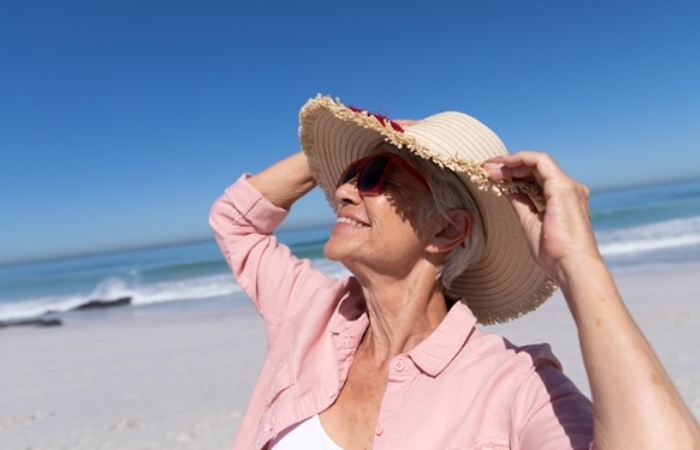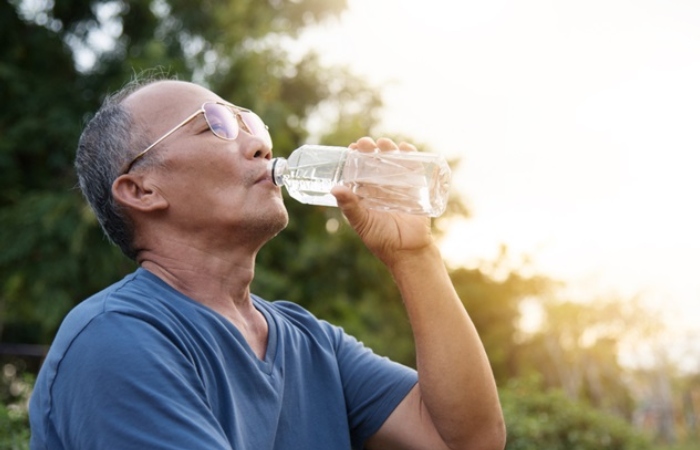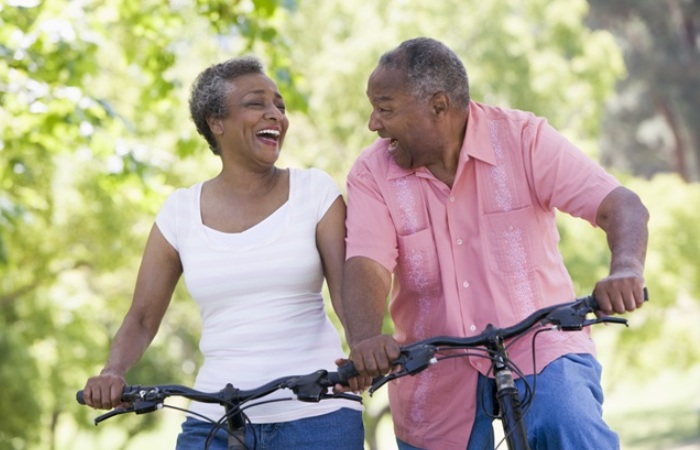Many seniors enjoy spending more time outside in the summer, but this doesn’t change the fact that sun exposure presents plenty of downsides, from sunburn to heat stroke to increased risk of skin cancer. Fortunately, there are plenty of prevention steps that you can take to protect yourself from the summer sun. Here are 11 things that every senior should do to protect themselves from the sun, from applying sunscreen every day to choosing light-colored adaptive clothing:
Slather on sunscreen.
You should wear sunscreen every single day of the year, but it’s especially important when the days are longer and the sun’s rays are stronger. Choose a sunscreen with at least SPF 30, and ideally one that offers even more protection. Apply it to all exposed skin and reapply every two hours to ensure adequate protection. You should also reapply sunscreen after getting out of the water at the lake, pool or beach.
Protect your face.
Sunscreen is great, but it’s not as effective as blocking the sun. The skin on your face and neck is especially sensitive, so you should give it some extra protection with a wide-brim hat that will cover the whole area with shade. You should wear some polarized sunglasses to protect your eyes and stop the sun’s glare from impairing your vision.

Get your skin checked out.
Everyone should get their skin checked regularly for suspicious moles and other skin issues. This is especially true for seniors, since the skin becomes thinner as we age, which means that it’s more prone to damage. If you haven’t been examined by a dermatologist recently, go ahead and book an appointment for this summer so that you can stay on top of your skin health.
Avoid the sun mid-day.
The sun’s rays are the strongest — and temperatures are the hottest — between the hours of 10 a.m. and 4 p.m. If you must get outside, then try to do it either in the morning or the evening when the sun is beginning to wane and temperatures are cooling off. Also look at the forecast ahead of time and plan your outside time for the days when temperatures will be the lowest.
Seek out shade.
Sitting in the warm sun can be nice, but it’s important to limit your time in direct sun, especially during the hottest hours of the day. Instead, seek out shade whenever you are outside. If you are at the beach, set up an umbrella. If you are at the park, choose a picnic under a tree. Staying in the shade will help you stay cool and greatly reduce your chances of sustaining a sunburn.

Find some air conditioning.
Fans can help you cool off, but once it hits the 90s or so, a basic fan won’t be enough to keep you cool. Instead, turn on the air conditioning in your house or seek out public spaces that have air conditioning. Shopping malls, local libraries and heat relief shelters are all good bets. Even just a few hours in air conditioning will help you better cope with the heat.
Keep yourself cool.
Taking a cool bath or shower can help lower your body temperature and help prevent overheating. If you are hanging out near the beach or pool, try getting in the water once every hour or so to help yourself cool down. You can also apply ice packs or cold compresses to the hottest areas of your body; a lot of seniors like to rest a wet towel on their neck to cool down fast.
Wear the right clothes.
Clothing can help you stay cool and protect your from the sun — or it can make your overheat. Select light-colored clothing that will reflect the sun’s rays to help you stay cool. Choose lightweight, loose-fitting, breathable clothing such as nightgowns for women that won’t cause you to overheat. Avoid tight or heavy clothing that will restrict your circulation or make you feel hot.

Don’t forget your shoes.
Many seniors are more active in the summer, which means that it’s essential to choose protective shoes with nonskid soles. If your feet tend to swell up a lot in the summer, get some of the best shoes for swollen feet that feature Velcro tabs so you can adjust the size during the day. And if you choose to wear sandals, be sure to apply sunscreen first so that you don’t get a sunburn on the tops of your feet.
Stay hydrated.
We sweat more in the summer, which means we need to replace all of that lost fluid by drinking more water. Watch out for drinks that are high in sugar, caffeine and/or alcohol, since they can make you become dehydrated more quickly. Instead, prioritize water, caffeine-free tea and other healthy drinks. Keep in mind that you should talk to your doctor before consuming sports drinks, electrolytes and other products that affect the balance of salts and sugars in your body.
Investigate your meds.
Did you know that certain medications make you more sensitive to the sun? Or that others require you to avoid the sun entirely? Read the labels on all of your medications carefully and talk to your doctor if one of them makes you more sensitive to the sun. Some medications can also make you more prone to dehydration, which increases your risk of heat-related illnesses, so you should know how all of your medications might interact with sun and heat.
What other things do you do to stay safe from the sun during the summer? What are your favorite things to do during the warmer months? Let us know in the comments below!
